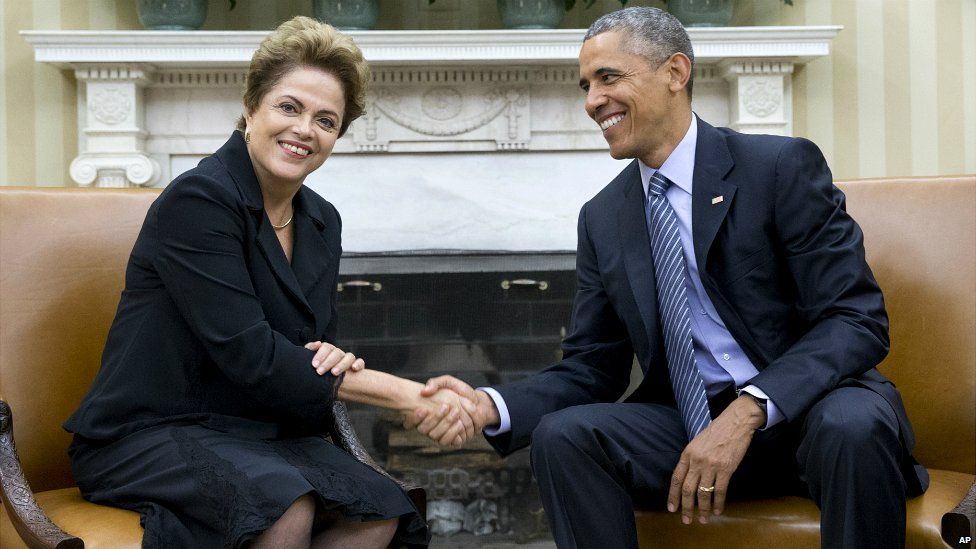US and Brazil set energy goals in sign of improving ties
- Published

The US and Brazil have unveiled ambitious energy goals in a sign of growing co-operation after a spying scandal damaged ties two years ago.
US President Barack Obama and Brazilian President Dilma Rousseff announced plans to up the amount of energy they use from renewable sources by 2030.
Ms Rousseff cancelled a trip to Washington in 2013 after claims the US had been listening to her phone calls.
Speaking on Tuesday, she said she had faith that such monitoring had stopped.
"The US government have stated on several occasions that they would no longer engage in intrusive acts of spying on friendly countries," Ms Rousseff told reporters after meeting Mr Obama at the White House.
"I believe President Obama," she said, adding that he would ring her if he wanted to know anything.
The leaders of the two biggest economies in the Americas said they were pledging to generate 20% of domestic electricity from renewable resources by 2030.
"These are very ambitious goals, a near tripling for the United States and more than double Brazil's current output," President Obama said at a joint news conference.
Their announcement comes ahead of crucial climate talks at a UN summit in Paris in December.
President Rousseff, 67, said her government had also pledged to eliminate illegal deforestation in the Amazon and to reforest swathes of degraded land.
But that commitment will be met with scepticism by some environmentalists amid signs that Amazon deforestation is again on the increase.
Analysis: Wyre Davies, BBC News, Rio de Janeiro
It makes all the sense in the world for the US and Brazil to put the embarrassing NSA spying row of 2013 behind them.
Dilma Rousseff is struggling to keep a grip on the reins of power in Brazil amid the massive corruption scandal at Petrobras.
But the one thing that will save her is for the impressive economic and social gains of the last decade to continue and in that US companies have a big role to play.
Billions of dollars worth of contracts to build infrastructure projects across Brazil were recently announced and, as the biggest inward investor in Brazil, US firms are well placed to snap up much of that business.
However, as President Rousseff acknowledged, Brazil also has to reduce its famously protective and bureaucratic barriers to outsiders if those opportunities are to be fully realized.
For the US too, this is a relationship worth developing. US diplomats will have watched nervously of late as China increased its economic muscle and political influence in the region via loans and credit guarantees.
- Published10 April 2015
- Published13 April 2016